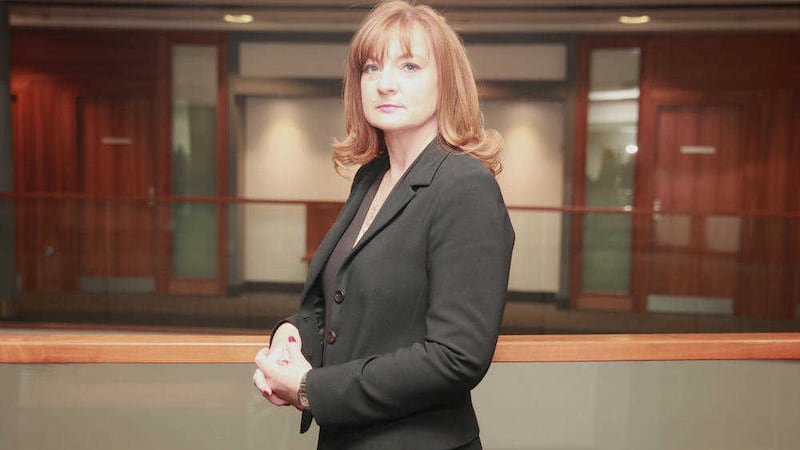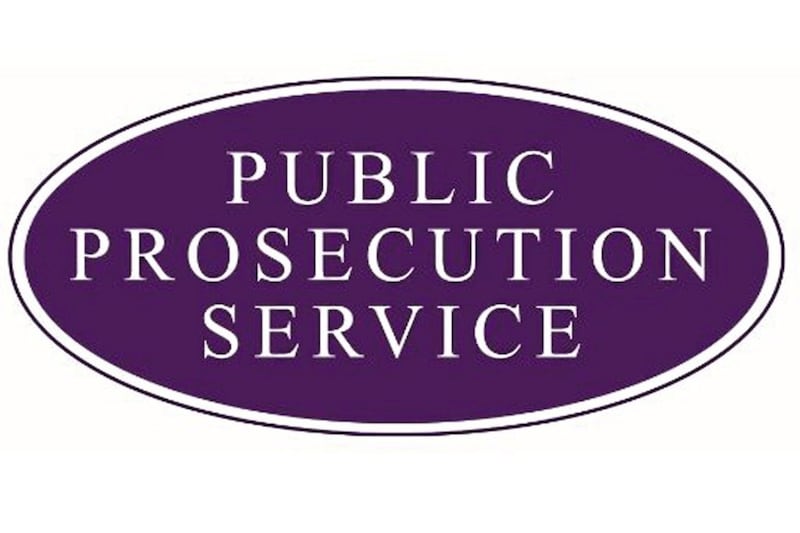MARIANNE O'Kane's "heart sank" when she was first asked to take charge of a new initiative aimed at cutting the time it takes for cases to get through Northern Ireland's notoriously slow-moving courts.
"I thought, well no-one's fixed it in 20 years, how can you fix it now?" the senior prosecutor told The Irish News with disarming frankness.
Ms O'Kane could not have predicted that, with help from a co-operative PSNI, her small team would have slashed the length cases took by a margin even the Lord Chief Justice has hailed as "dramatic".
The `Indictable Cases Pilot' began in Ards Magistrates Court on January 2 2015 and was supposed to run until the end of December, but was halted in November due to a barristers' strike in an unconnected dispute over legal aid.
It had been Sir Declan Morgan who, in effect, laid down a three-line whip to the rest of the criminal justice system in 2014, when he commissioned "an exercise to see how the progress of indictable cases could be speeded up".
Along with fellow members of the north's judiciary, he had grown frustrated with cases returning to the courts multiple times over the course of years, only to have a guilty plea entered just as the trial was about to begin.
"He was looking at the worst performing cases which were taking 900 days," she said.
The average for `indictable' (Crown Court) cases was still 555 days from the moment police were called to the scene of an alleged crime until sentencing.
Ms O'Kane and her PSNI counterparts looked at "what the PPS (Public Prosecution Service) and police can control, which is the stages up to committal" - after that the apparatus of the court system also comes into play.
They identified that a significant portion of the time of both police and prosecutors was taken up with files being sent back and forth because they were not of sufficient quality to allow a decision to be taken on whether the case met the strict criteria for prosecution.
The solution was a closer working relationship between the organisations and it has paid dividends.
"Where advice is given there is a direct corelation with file quality. It is completed at a point where it is ready to move straight to a decision," Ms O'Kane said.
"Previously in murder cases we would never expect to receive a file until at least a year had elapsed."
She then points to the case of Albert Armstrong, who was jailed for life last month after pleading guilty to killing veteran UDA man Colin 'Bap' Lyndsay and Stanley Wightman with a samurai sword last July.
Under `business as usual' the file would only be received by prosecutors from around now - instead the entire case has been completed.
"When the defendant was interviewed he had asserted he was not even present at the scene," Ms O'Kane said.
"We engaged with defence solicitors and were making submissions that that defence was not sustainable."
Once that was acknowledged it "substantially narrowed the issues", cutting the time taken to prepare both prosecution and defence cases.
"It was nine months from the incident to the guilty plea," Ms O'Kane said.
She stressed that the time scale "depends on the case - not all cases will progress at that speed - but even to reduce delay in a proportion of cases" will make a big difference.
"This pilot was really a test of concept to see if certain principles are applied and if all principles work to their optimum what reduction can be achieved."
The Lord Chief Justice has agreed "the early results have been dramatic".
"It is an indication that, where the resources are concentrated, you can make a big change," he told Stormont's justice committee.
"We should not be blind to the fact that that can be secured."
He also praised the "considerable effort made by all of those involved" and has proposed that the scheme be extended to all murder and manslaughter cases.
"If we continue to drive down delay, we can ensure that the existing case load could be managed by fewer people," he said.
"Changes like this, however, cannot be achieved by the flick of a button or the slashing of a fee. They take time, and budgetary constraints should try to recognise that and, where possible, accommodate it."
This could be a contentious issue, with the prosecutor acknowledging the pilot had "a major resource impact", with prosecutors spending "a lot more time" to achieve the results and three senior prosecutors dedicated to the pilot for an entire year, with their workload resdistributed to the rest of the regional team.
"There is no extra resource available to make up additional time.
"We can't roll it out until the resource question is resolved."
However, Ms O'Kane and police colleague Superintendent Sue-Ann Steen have already carried out 25 briefings of their own organisations and the legal professions, highlighting how the success was achieved and can be applied in other cases.
"Police are not concerned about the effort involved, they want to secure just outcomes."
Victims, she believes, will be the real winners, no longer having to "endure lengthy delays waiting for a trial".
Ms O'Kane has since been appointed to lead the new PPS Serious Crime Unit, which handles around 1,400 cases covering murder, attempted murder, manslaughter, human trafficking, prostitution, female genital mutilation, rape and other sexual offences.
It is made up of 10 "very experienced senior prosecutors in a really high performing team".
"These prosecutors have chosen to do this work and have accepted the increased accountability and visibility that comes with this case type.
"They have signed up to quite high level aims and objectives that are different to those expected of other prosecutors within the PPS.
"They have a high level of engagement with victims and witnesses in cases that are often very traumatic in nature and have the necessary skills for that."
Although planned before the excoriating Starmer Review into the cases of three victims of alleged rape and an IRA cover-up, it is being held up by the PPS as providing the many of remedies to the catalogue of failings detailed in the report.
The trials involving Senator Mairia Cahill and two others collapsed after all three of withdrew their evidence, with the former saying she had lost faith in the PPS handling of her case.
A 47-page report by Sir Keir Starmer, a former director of public prosecutions for England and Wales, identified more than a dozen failings, including the time taken to bring cases.
Ms O'Kane's new unit has promised to deliver "honest, consistent decision-making and highest quality service" and bring in new practices to increase the number of decisions to prosecute and increase conviction rates.
Unlike her trepidation over the Ards Pilot, Ms O'Kane is undaunted by the task of establishing and running the Serious Crime Unit, which she took on in January.
"It's a post that I aspired to have and I feel genuinely privileged to lead the team that I do, to be involved in these important cases, to ensure that a high quality service is delivered to victims and witnesses and home in some small way we can support and assist victims."
The unit has already collected an innovation award for its work on the Ards Pilot at the Northern Ireland Civil Service Awards.
In tone anyway, the approach is very different from decades of a prosecution service which appeared to reject the notion that it had particular responsibility towards victims, and was instead merely a cipher of the blind justice of the state.
That tone has changed in recent years and the stated ethos of the Serious Crime Unit appears to be the ultimate outworking of this.
"There have been big changes," Ms O'Kane said.
"When I joined (in the late 1990s) it was the Department of the Director of Public Prosecutions. The greatest transformation has been the level of public accountability and external scrutiny of the work we do.
"I believe that's a positive development. We're a public service and should be open to accountability."
She is applying a number of the principles from the Ards Pilot to the new unit, although not all are transferable.
"In the case of rape, the issue is not speed, these cases are inevitably going to take time. The aim is to look at whether redesigned process leads to increased prosecution and conviction rates."
The unit, which has a permanent police liaison officer working within it, will deal with around 400 rape cases every year and will "look very carefully at case building, scrutinising all the evidence to see if they can identify further, relevant lines of inquiry that police might pursue".
Medical records will be more closely scrutinised, including those from GPs that might reveal concerns over abuse.
Decisions not to prosecute are now automatically reviewed by a second member of the team and if there is disagreement sent to Ms O'Kane who makes the ultimate decision.
Victims are routinely given an explanation why a case is not going to proceed - currently that is 82.8 per cent of cases and usually, Ms O'Kane said, "an evidential issue".
It's early days, but she says there has been "only one review request and no complaints about the quality of service".
"It's too early to say whether conviction rates and decision rates will change."
There are 10 clearly-stated written aims for the Serious Crime Unit, including `building confidence and satisfaction' and `improving performance'.
"I expect and am happy to be held accountable to meeting them," Ms O'Kane said.







